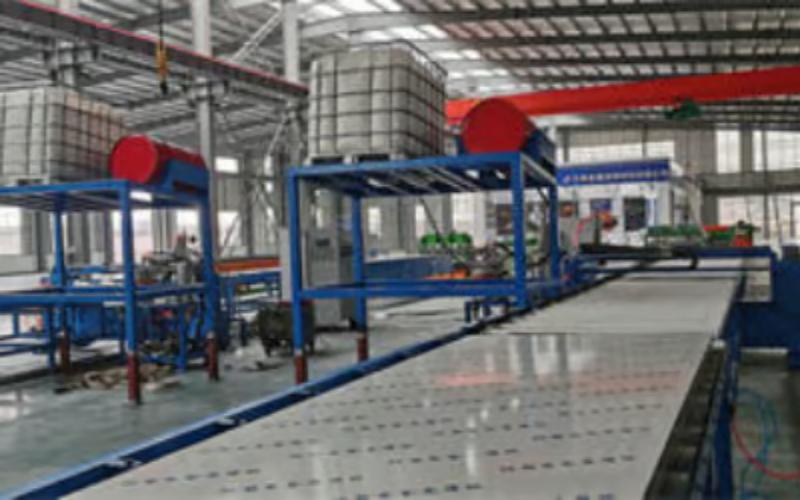Table of Contents

1. Increased Energy Efficiency
Polyurethane insulation offers several advantages when used in house walls, with one of the most significant being its ability to increase energy efficiency. The insulation material has excellent thermal performance, meaning it can effectively reduce heat transfer between the interior and exterior of the house. This results in less dependence on heating and cooling systems, ultimately leading to lower energy bills.
2. Enhanced Comfort
With polyurethane insulation installed in house walls, homeowners can enjoy a more comfortable living environment. The insulation material helps to maintain a consistent temperature throughout the house, reducing temperature fluctuations and eliminating cold spots. Additionally, polyurethane insulation has sound absorption properties, reducing noise transmission from outside, resulting in a quieter and more peaceful indoor environment.
3. Moisture Resistance
Polyurethane insulation is known for its excellent moisture resistance. Unlike other insulation materials, such as fiberglass, polyurethane does not absorb water. This characteristic makes it highly suitable for house walls, as it helps to prevent the buildup of moisture and the growth of mold and mildew. By keeping the walls dry, polyurethane insulation contributes to the overall durability and longevity of the house.
4. Versatility
Another advantage of polyurethane insulation in house walls is its versatility. The material can be used in various wall types, including wood, concrete, and steel. It can also be applied to both new construction projects and existing homes undergoing renovations. The adaptability of polyurethane insulation makes it a popular choice among homeowners and builders alike.
5. Space Efficiency
Polyurethane insulation is known for its high insulating performance with minimal thickness. This means that it requires less space compared to other insulation materials to achieve the same level of insulation. In situations where space is limited, such as in retrofitting projects or narrow wall cavities, polyurethane insulation offers a significant advantage by providing effective insulation without compromising valuable living space.
6. Environmental Friendliness
Choosing polyurethane insulation for house walls can also contribute to a more sustainable environment. Polyurethane foam can be manufactured using renewable resources, reducing reliance on fossil fuels. Additionally, the energy savings achieved through increased insulation efficiency can help reduce greenhouse gas emissions. By opting for polyurethane insulation, homeowners can actively participate in reducing their carbon footprint.
7. Fire Resistance
Polyurethane insulation is inherently fire-resistant. It has a high ignition temperature and does not contribute significantly to the spread of flames. In the event of a fire, polyurethane insulation can help to delay the spread of fire, providing valuable time for occupants to evacuate the building safely. This fire-resistant property makes polyurethane insulation a desirable choice for enhancing the safety of house walls.
8. Cost Savings
While the initial cost of polyurethane insulation may be higher compared to other insulation materials, its long-term cost savings make it a worthwhile investment. The increased energy efficiency of polyurethane insulation translates to lower monthly utility bills, allowing homeowners to recoup the initial cost over time. Additionally, the durability and longevity of polyurethane insulation reduce the need for frequent replacements, further contributing to cost savings in the long run.
9. Pest Resistance
Polyurethane insulation acts as a barrier against pests such as rodents and insects. The material's closed-cell structure makes it difficult for pests to penetrate, preventing them from entering the house through the walls. This advantage helps to protect the structural integrity of the house and eliminates the need for additional pest control measures.
10. Easy Installation
Finally, polyurethane insulation is known for its ease of installation. It can be applied as a liquid foam that expands and fills gaps, ensuring a seamless insulation layer. The installation process is relatively quick and straightforward, minimizing disruption to homeowners during construction or renovation projects. The simplicity of installation also contributes to the overall cost-effectiveness of polyurethane insulation.

